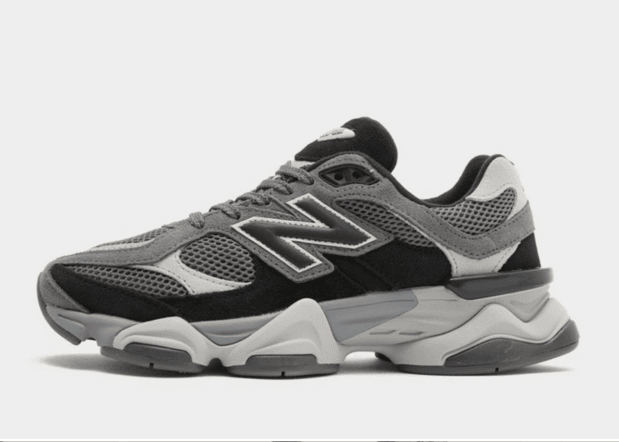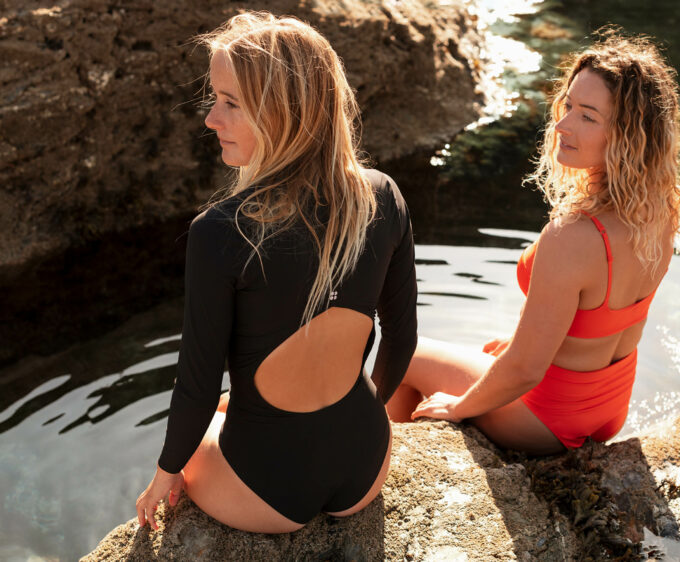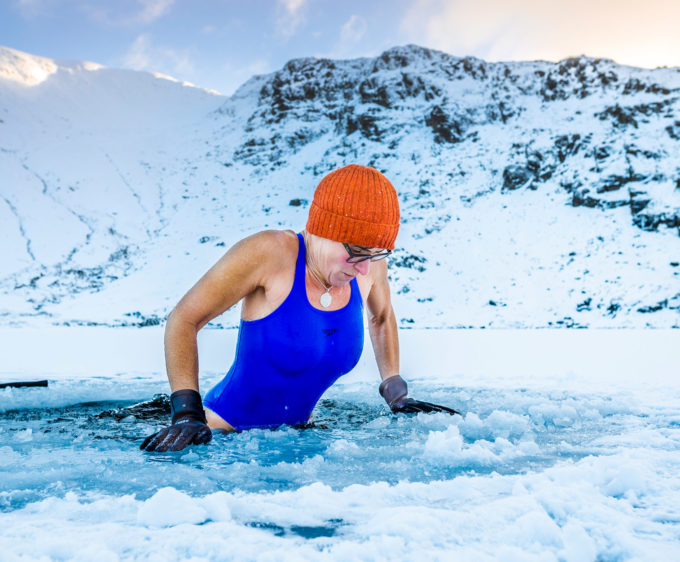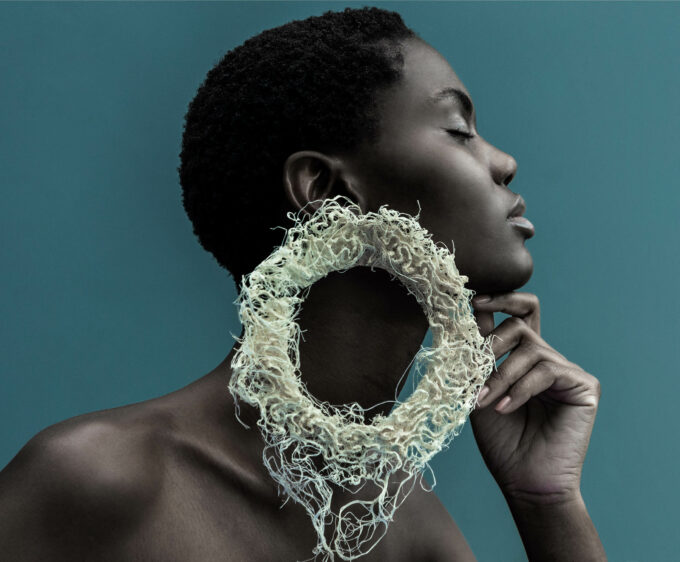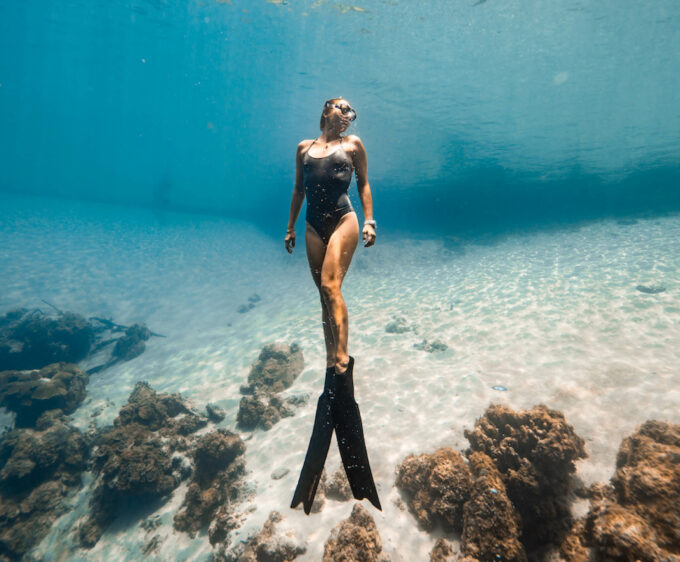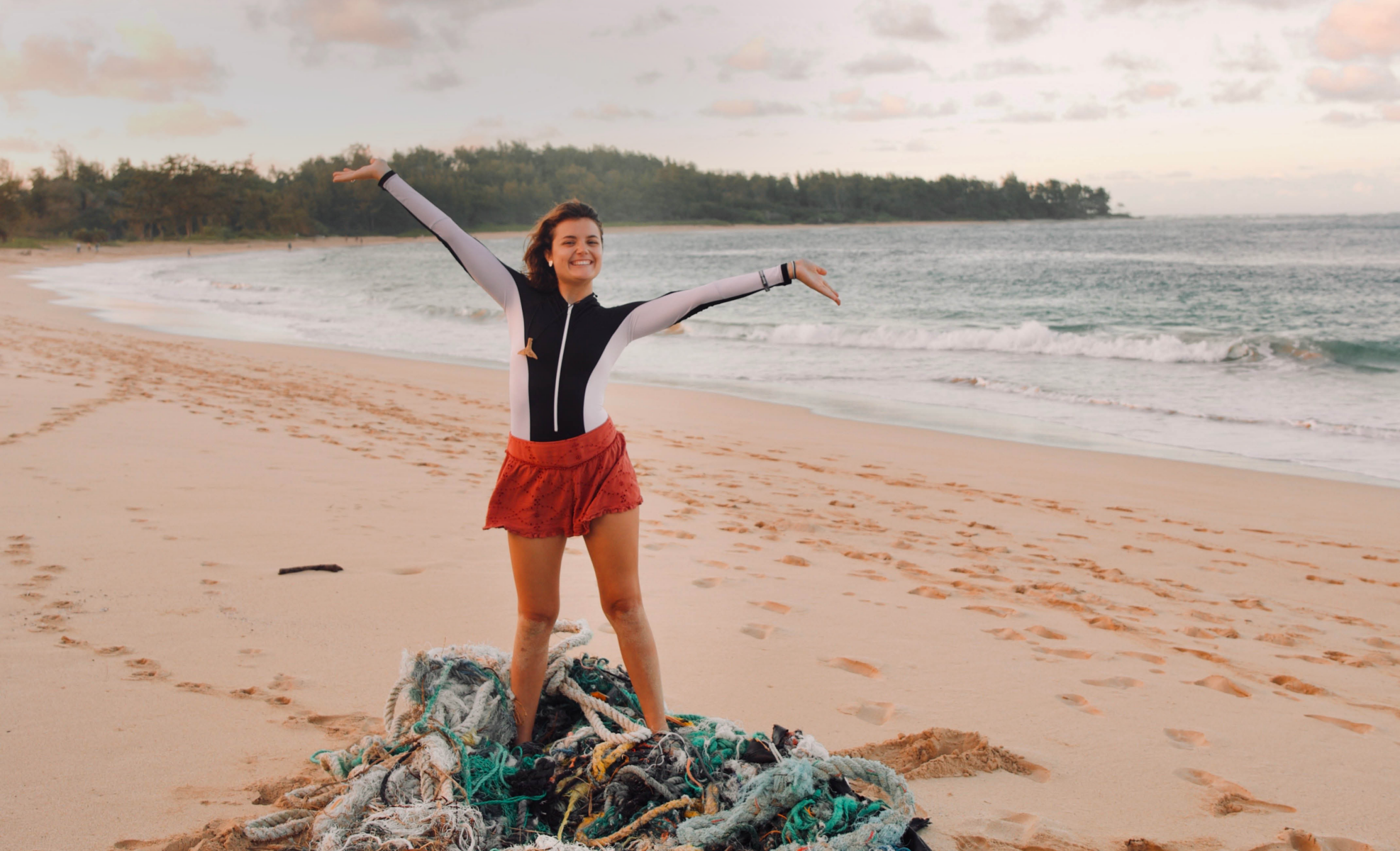
Ocean: The Marine Conservationist
Curious about how you can make a difference and help conserve the ocean? We sit down with marine conservationist and keen diver Kendra Nelson to learn more about her journey, the biggest threats to the ocean, and how you can take action
By Glorious
Meet Kendra Nelson, a marine conservationist who has dedicated her life to protecting the ocean. Growing up in Arizona, Kendra’s fascination with marine life, particularly killer whales, led her to study marine biology at University. As she delved deeper into her studies, Kendra discovered her true passion for environmental conservation. She started by participating in beach clean-ups, sharing educational content on social media, and organising her own clean-ups. What started as a small initiative soon transformed into a profound commitment to advocating for conservation both online and in-person. Kendra’s journey is an inspiring testament to the power of individual action and the importance of protecting our oceans for future generations
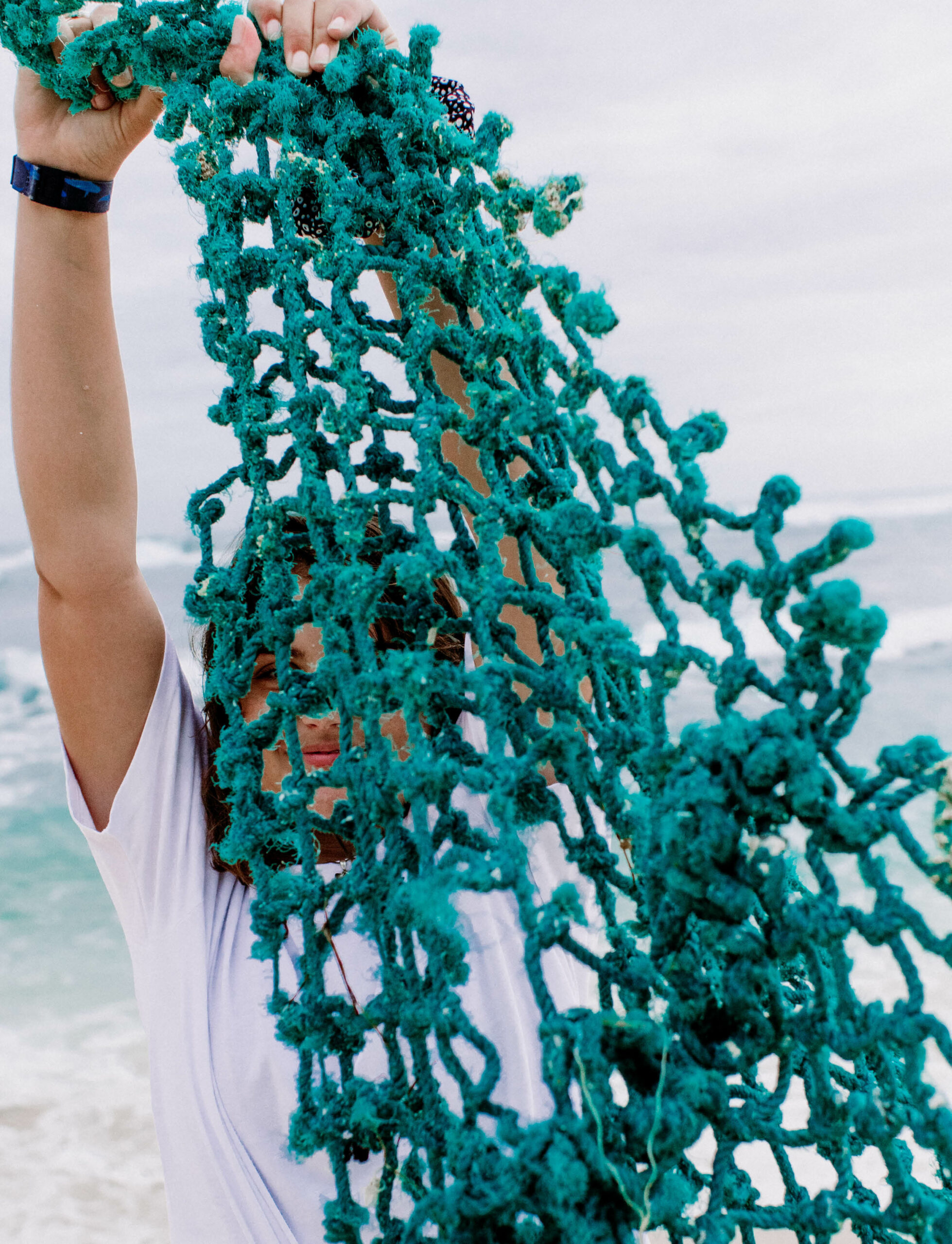
Glorious: Did you always know you would study marine biology?
Kendra Nelson: I knew I wanted to study marine biology since I was a little girl. Since I was a toddler, I have been absolutely in love with the ocean and, specifically, killer whales, as my family regularly visited SeaWorld parks throughout my childhood. As I grew up, I maintained that desire to study marine biology and try to work with killer whales in some capacity. While in university, I jumped around different topics that intrigued me, like gelatinous zooplankton. Overall I realised that I wanted to work in environmental conservation. I first started my journey in conservation by attending a beach cleanup and beginning to share educational information on my social media. Then it just kept growing. I started organising beach cleanups, attending them monthly, and posting more and more about different conservation issues, like plastic pollution, coral reef bleaching, and shark finning. I didn’t expect to turn to conservation so passionately but am so grateful that I did. Now I dedicate my time to continue advocating for conservation on social media and in-person. I particularly work closely with efforts to help Pacific salmon and the Southern Resident killer whales. Those are just two issues I focus the most on, but I talk a lot about other threats facing the ocean as well and encourage people to take action against these threats.
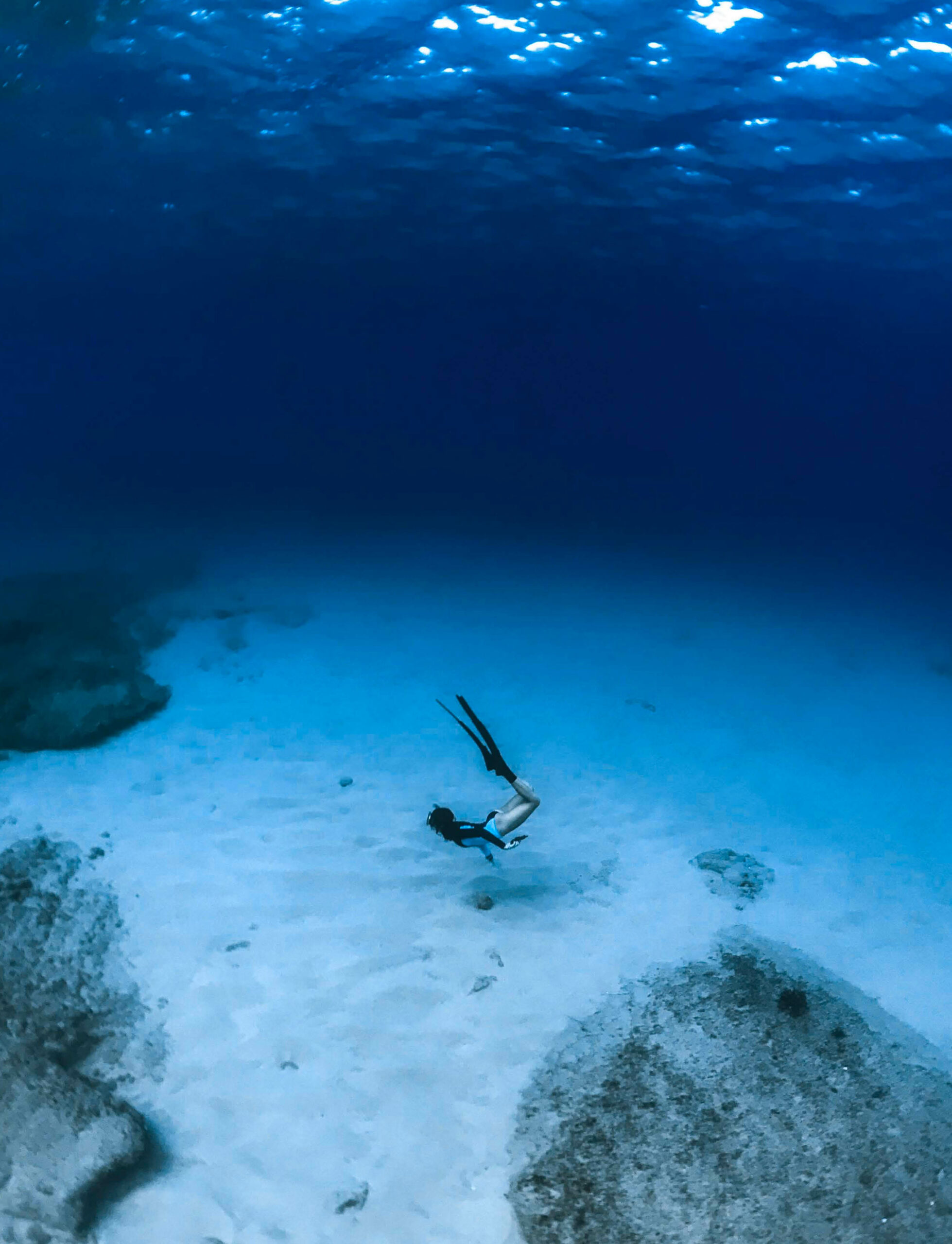
I currently work full-time as the Social Media Coordinator for the Rivershed Society of BC, an environmental non-profit charity dedicated to improving the health of the Fraser Watershed and its riversheds, and I am the Board Secretary for Orca Conservancy, a nonprofit dedicated to killer whale conservation in the Salish Sea. I am also a content creator with my own platforms, working to share educational information on marine life, conservation and insights into the field of marine science. I was not expecting to dive into social media education/outreach, but it ended up working out perfectly. I started taking my social media seriously in 2018. I would spend lots of time researching to create educational content on various conservation issues. Then I just never stopped, expanded to other platforms, and began working with organisations/brands. It is a huge privilege and honour to me that so many people follow me and engage with my content now. It is so motivating and makes me feel so much hope that so many people care about the ocean and marine life.
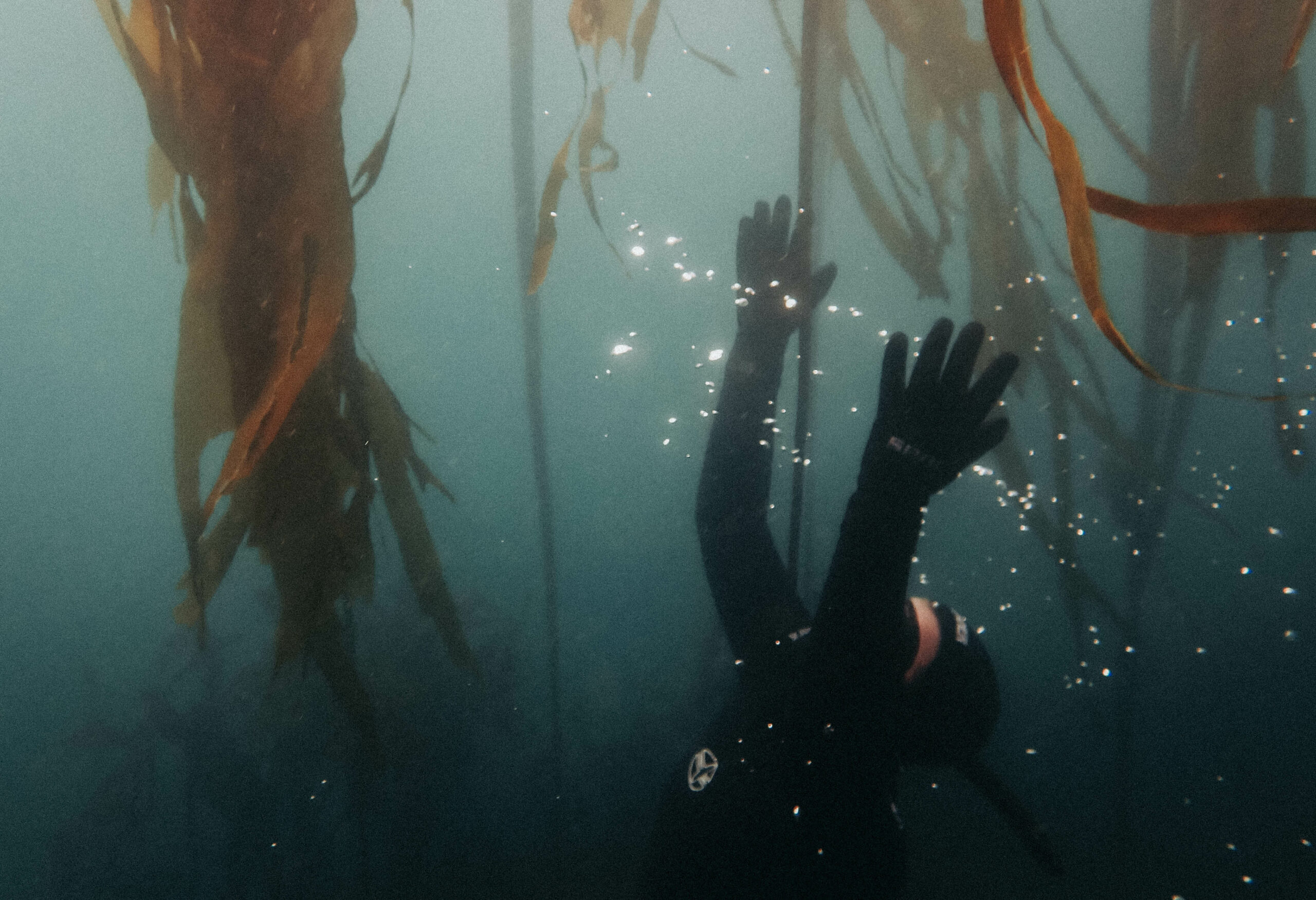
Glorious: What does a typical day look like?
Kendra Nelson: As a social media coordinator, I am at my desk most days, working on creating social media posts for the organisation, writing blogs, and creating marketing materials. I do a lot of graphic design for various uses within the organisation. Occasionally I get to stretch my legs to photograph some of the in-person work at the organisation or represent the organisation at tabling events, helping with education/outreach. As a board director at Orca Conservancy, I attend a lot of board meetings and have insights into decision-making at the organisation. I also assist with in-person work, like tabling or helping collect footage of whales for sightings reports. I also help to craft fundraising ideas! Because a huge part of working for non-profits is fundraising!
As a content creator, I stay on top of social media trends and what my own followers have been asking me to craft my content. And each platform is different, so it is a lot of work to plan and execute different strategies on separate platforms. Some days I am shooting content for a collaboration with a brand/business, emailing back and forth with details/edits. Other days I am working on filming my own content, from fun vlogs to a trending meme. And other days its ‘research’ or “time-off”. It is kinda hard to take leisure time when your job is social media, since I have to be on the platforms to keep up-to-date, but I do try and take days where I don’t do content creation and put the phone down. This is really important to try and navigate burnout. My day-to-day is generally a combination of these three roles and is seemingly boring since I sit at my desk all day, but I love it. It takes a lot of time and balancing, but I am so dedicated to marine conservation and my work that it is so worth it.
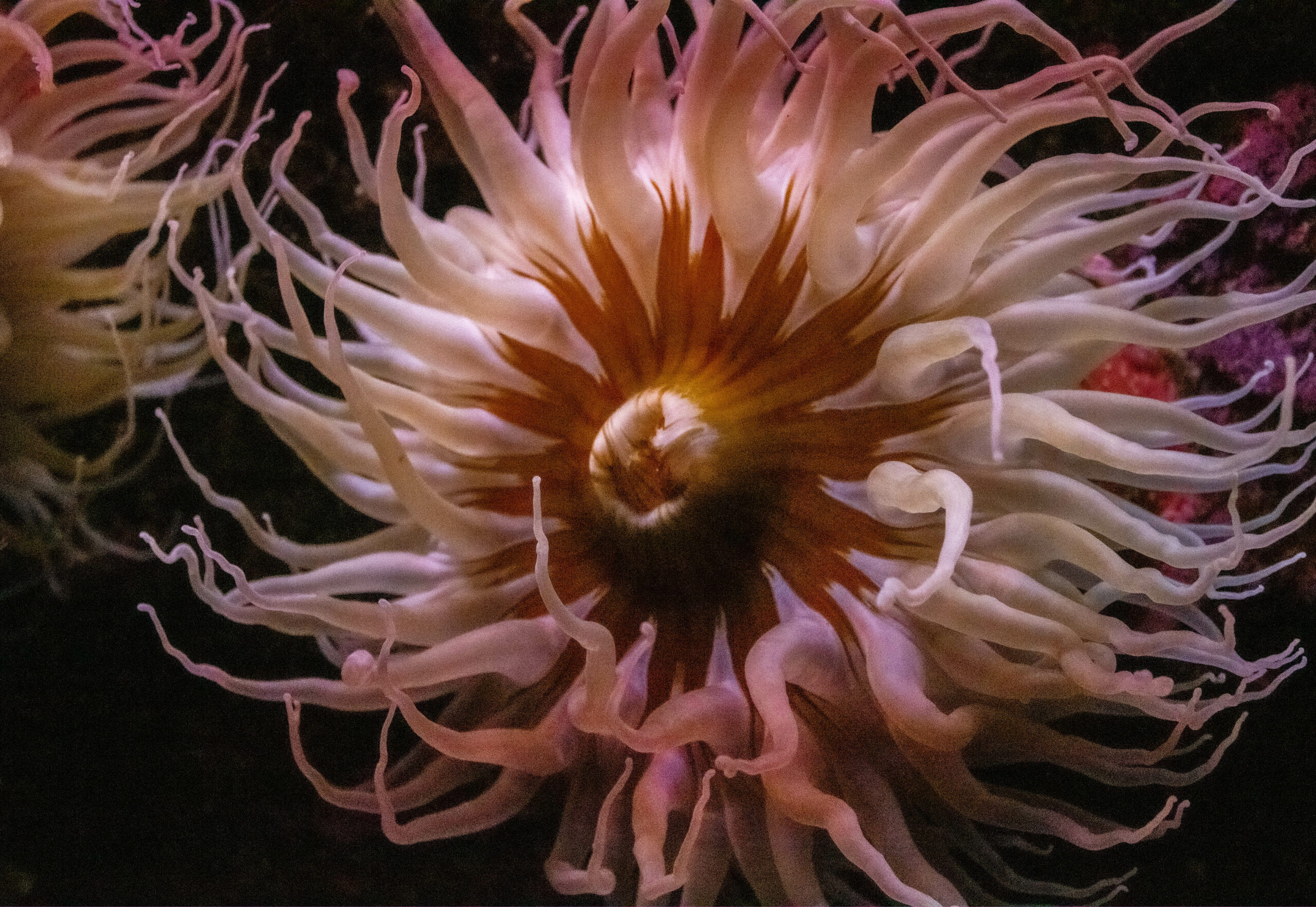
encourage
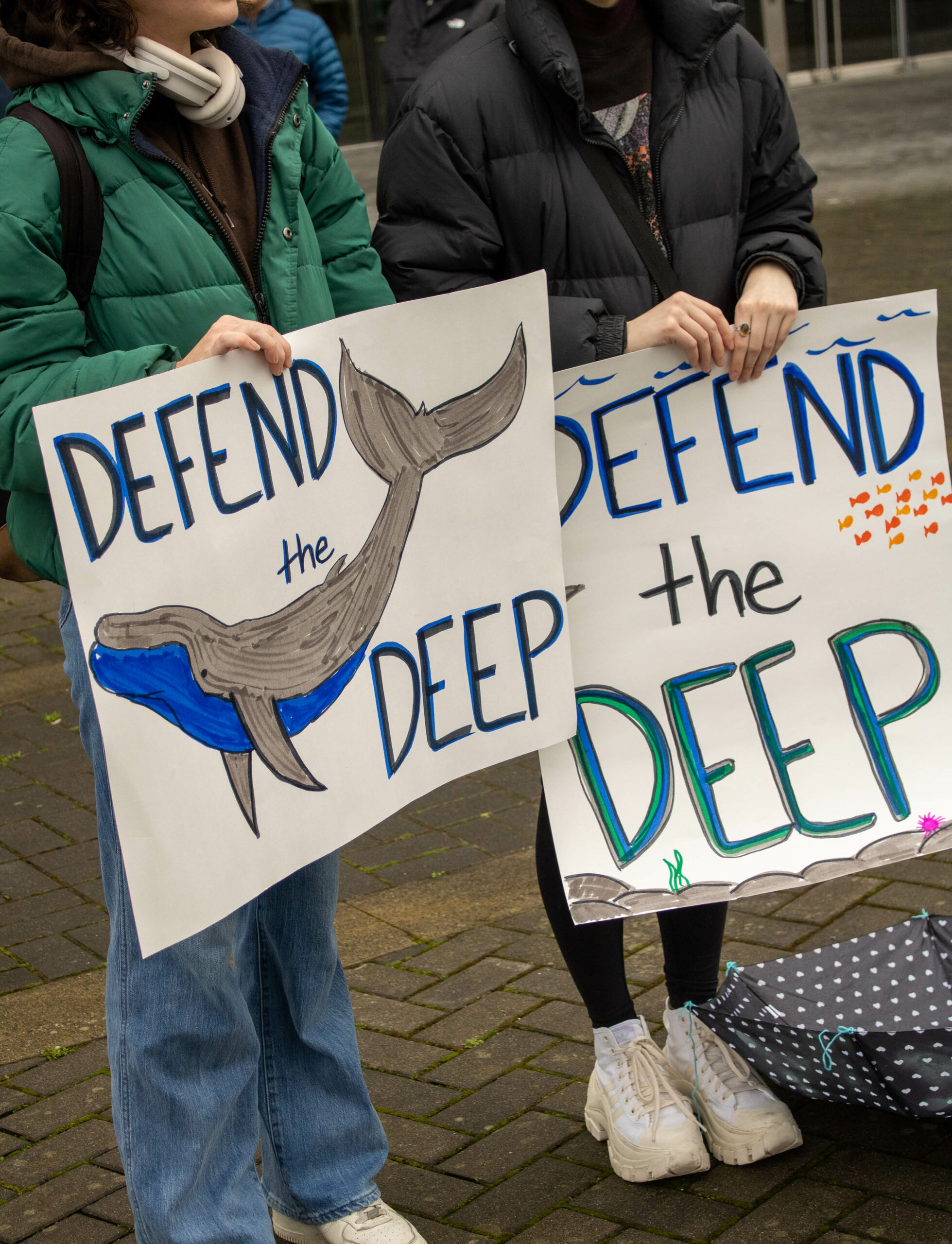
Glorious: This Glorious story drop focuses around World Ocean Day. What do you think the biggest threats to the ocean are?
Kendra Nelson: Climate change and pollution are definitely two of the largest threats to the ocean and people. The climate crisis is here and so many are already facing that reality. Climate change has come about as a result of capitalistic societies that prioritise wealth over environmental and human health. A current looming threat facing the oceans is deep-sea mining, the process of extracting minerals from the deep seabed (>200m). These mineral deposits contain sought-after metals such as cobalt, nickel, and manganese. Many want to mine these deposits to aid the industry, as these metals are used in cell phones, solar panels, engines, and more. But this process is extremely harmful and can destroy entire habitats that take centuries (some have taken millions of years) to establish and wipe out entire species that we may not even know about yet. If deep-sea mining is allowed, there will be a critical loss of biodiversity in the oceans that will impact all of us, even if we don’t see the impact that the deep sea has on our daily lives (it does impact us every single day, as an essential part of the world’s ecosystem). Protecting this precious biome is critical. But the root of the threat is capitalism. It’s the colonial need to exploit, to take to feed our current urges and not think of the consequences.
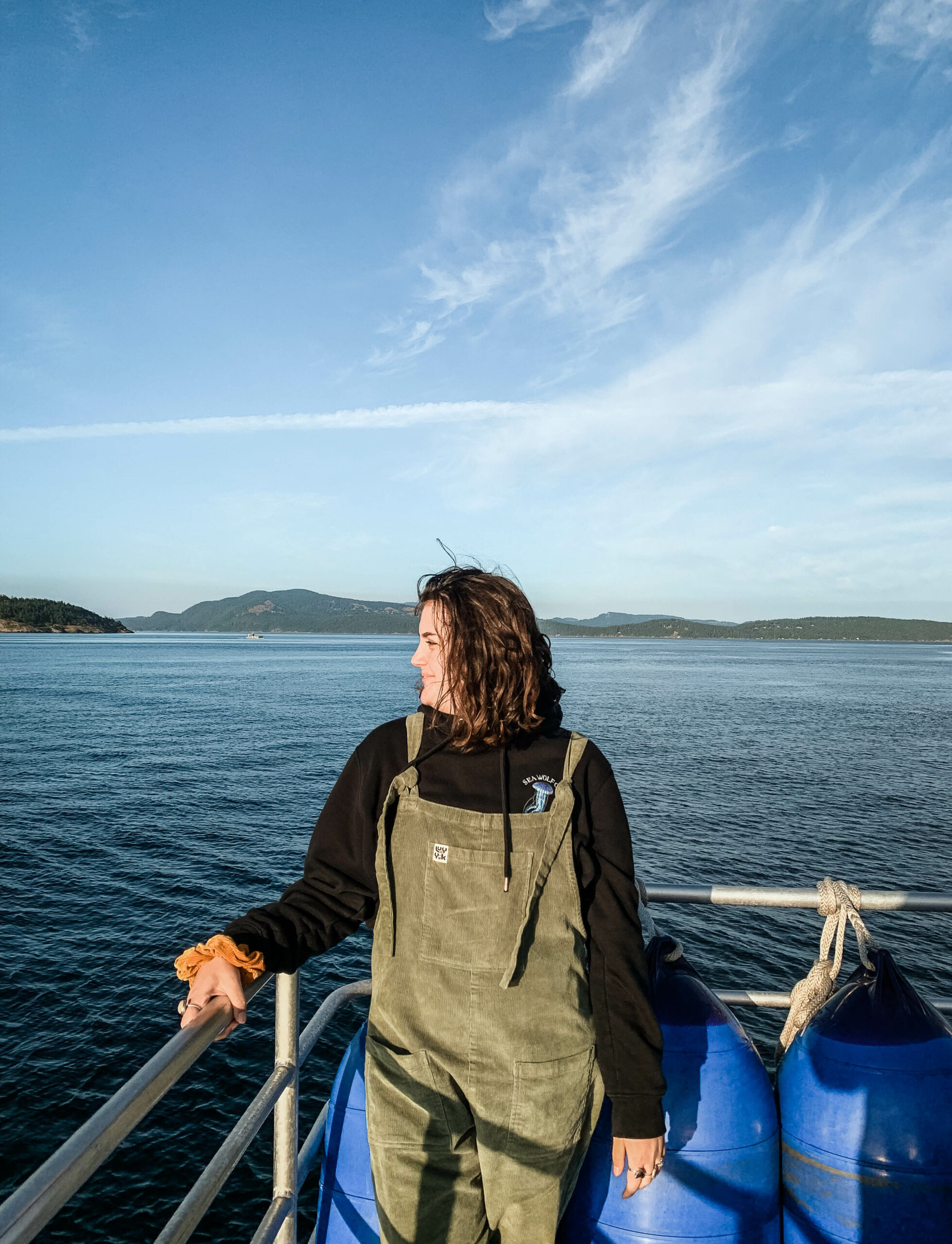
Even as scientists and conservationists warn of the harmful impacts, industry ignores and is working to push forward for exploitation and destruction. Plastic pollution is rampant, choking marine life but also ending up in our own bloodstream. I have seen so much plastic pollution, I can’t even describe. I have spent hours just sifting sand from plastic, detangling derelict fishing nets, and walking the beach, picking up handfuls of waste, stuffing my pockets to try and take as much as I could off of the beach. I have seen corals tangled in fishing nets and plastic bags floating out in the pelagic. Plastic pollution isn’t the only type of pollution, but chemical pollutants are a rampant threat as well. PCB’s (Polychlorinated biphenyl) have been found to accumulate in the aquatic ecosystem, building up in the bodies of marine mammals. PCBs present a major toxicological threat to marine life, and have been associated with reproductive problems, disruption of the immune system, and hormonal imbalances. With several marine mammal populations already threatened by other factors, the silent threat of chemical pollution is chilling. Runoff from agricultural land also threaten waterways and the ocean, leeching pesticides and other substances into precious ecosystems. Such chemical runoffs have led to die-offs of aquatic species, like juvenile salmon and juvenile reef fish in estuary environments. Or the infamous Red Tide events that can be caused by an overabundance of nutrients, like fixed nitrogen and phosphates, that are coming from agriculture and urban runoff. (Not every Red Tide is caused by this, but I am specifically talking about the instances linked to human activity).
Glorious: What are the key things you think people can do or stop doing in order to make an impact?
Kendra Nelson: Personal action is incredible and I always encourage people to make those personal actions, as I do those myself, but it is vital that personal actions are paired with pushes for systemic changes. The threats facing the ocean are systemic in nature, from plastic pollution to oil spills to subsidised overfishing. Advocating for changes in plastic production and waste management is so important to tackle plastic pollution threats towards the ocean because we need to turn off the plastic tap (right now you can speak up and push for a global plastics treaty). We need to be supporting and voting for bold, climate leaders and telling our political representatives to support legislation that reduces emissions, holds polluters responsible, and gives funds to environmental conservation initiatives.
You can be the change that you want to see for the ocean through both personal choices and advocating for systemic change. If you have the ability, donating to conservation organisations or research labs is also an amazing way to make an impact. Even $5 can go a long way. I have worked to donate to organisations that I love for years, even when I was at university and could only do a few dollars each month. And now, working for nonprofits, these donations and the support mean so much. Which is why I always remind people to donate if they are able! Get involved in local efforts! Whether that is advocating for better water management in dry areas, protesting oil pipelines, helping with restoration work, signing an online petition, attending a beach cleanup, or attending a documentary screening with a nonprofit, these actions are a great way to get involved. I share more ways to take action in a question later on as well!
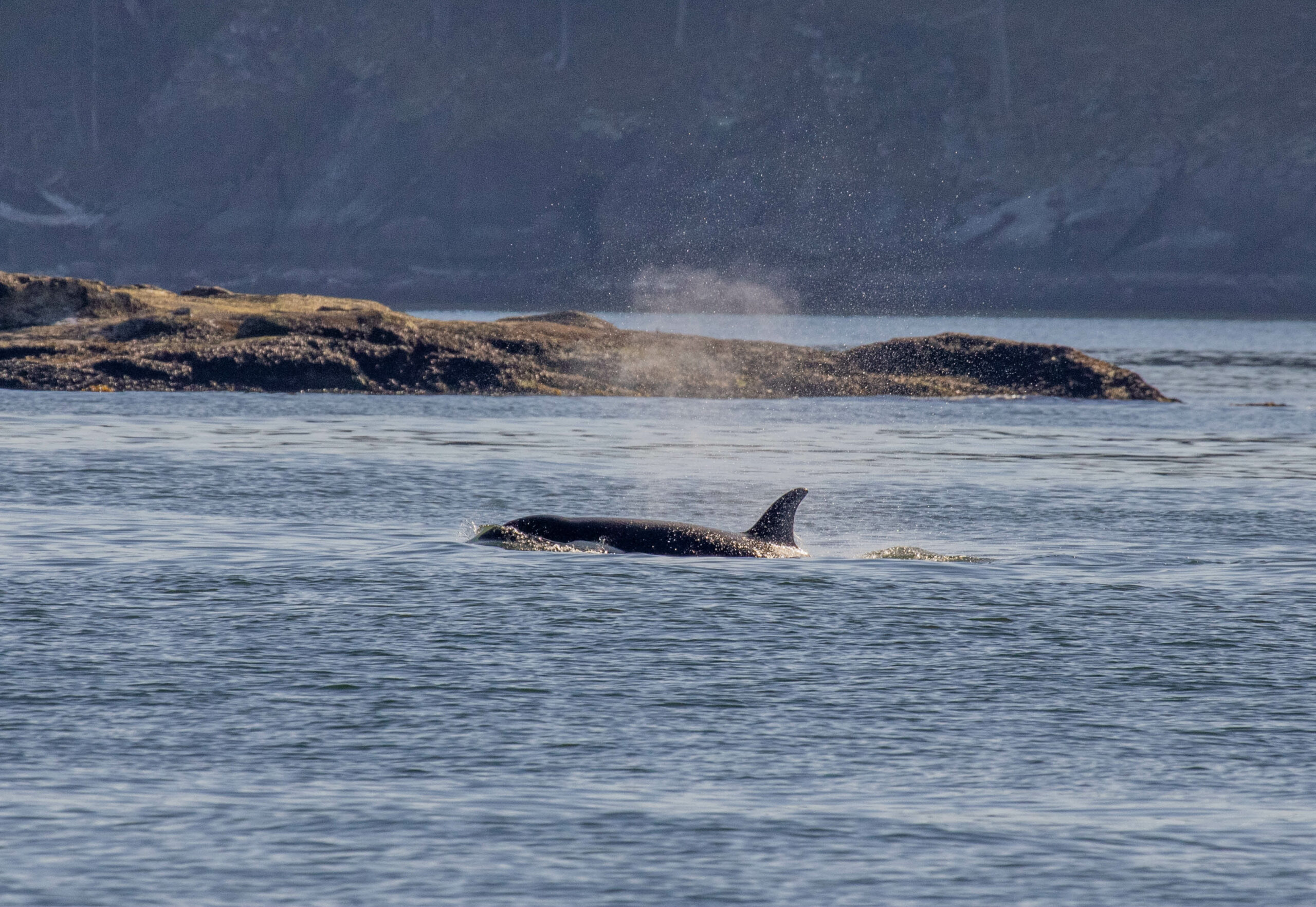
Glorious: What advice would you give someone looking to get into marine conservation?
Kendra Nelson: My biggest piece of advice for those looking to get into this field is to jump in and start networking and getting experiences as soon as you can. Don’t be picky with the experiences. For example, if you wanted to work with sea lions, still go for the internships and opportunities focused on invertebrates or kelp. Those skills and the time you spend working in the field are incredibly beneficial and you may also find that another part of the field is something you might want to explore. Keep an open mind (especially if you are entering the field wanting to work with a charismatic species. Those areas are highly competitive so it is good to keep an open mind to other opportunities).
And building out your network is so important. A good network can help you get experience, job opportunities, and new connections in the field that can help you move forward with your goals/aspirations.
There are lots of jobs in this field. So many. A big misconception is that you get a degree and your job title will be “marine biologist,” but that is not the case. You get your degree, you are a marine biologist, but your job title will likely be something different. Like fisheries program manager, conservation technician, animal care specialist, hydrologist, marine resource specialist, commercial diver, environmental consultant, marine microbiologist, underwater acoustic technician, marine architect, marine botanist, groundfish observer, outreach and education director, marine science program coordinator, and biomedical researcher.
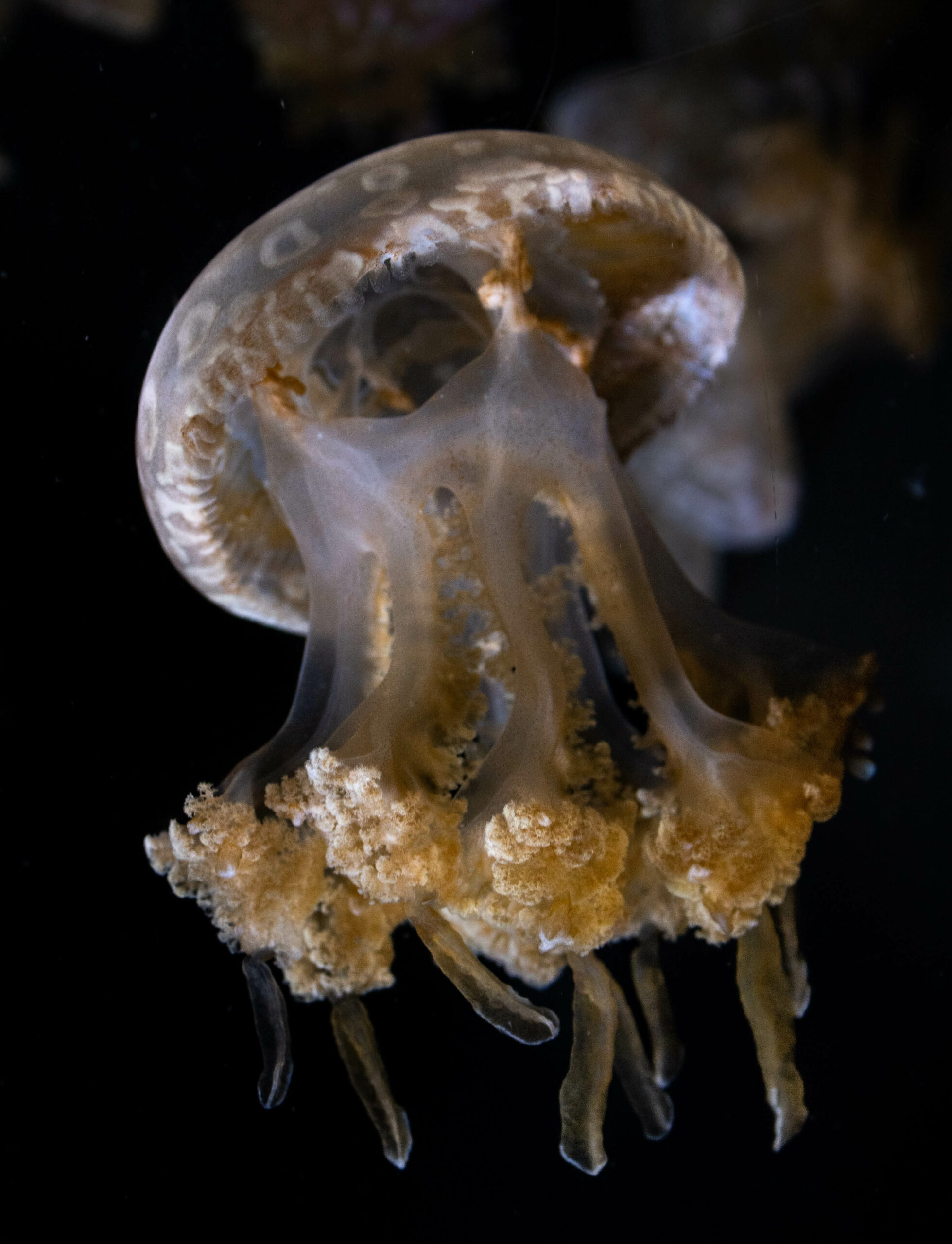
Glorious: The theme of World Ocean Day 2023 is Planet Ocean: Tides are Changing. Do you think they are?
Kendra: I think so. In my years working in this field, the public has become much more aware and engaged in environmental conservation topics. Younger generations are especially invested and are strong advocates for the ocean and planet. There are still existing threats and new ones looming on the horizon, but there are also so many amazing people dedicating their time to push for change and action to protect the environment. I have definitely seen people in my personal life and online become more aware and start to change after learning about conservation issues. Sometimes it just takes time, but I do have so much hope and optimism for positive change. And I think it is important that we all have hope for change.
Glorious: You’re on the board of Orca Conservancy, tell us a little about this and why it’s so important to you? Have you always been interested in Killer Whales?
Kendra Nelson: I first began advocating for the Southern Resident killer whales in 2018 and launched right into wanting to help this endangered population as much as I possibly could. Growing up, I was obsessed and enamoured with killer whales. My original plan was to be a killer whale trainer at SeaWorld, and I spent almost my entire life wanting to achieve that goal. But learning more about research and conservation for the Southern Residents, I changed my goals. I wanted to spend my career working to protect the Southern Residents and also help advocate for ocean conservation as a whole. The SRKW are important to the biodiversity of the Pacific Northwest, and ocean.
Without the residents, we will see a detrimental trophic cascade in the Salish Sea ecosystem. Losing an apex predator will impact every species beneath them, including humans. Many people dismiss the extinction of these fish-eating killer whales as they don’t believe it will impact them (humans) at all. There have even been suggestions that their loss may be beneficial because if the SRKW are gone, salmon populations will increase. This is not true. We have seen predators disappear from other ecosystems and know that it ultimately damages the ecosystem and, subsequently, humans. Preserving biodiversity is essential for preserving healthy resources for humans and other animals that rely on the ecosystems we inhabit. Ecologically and culturally, these whales are important to the Salish Sea. A healthy population means the ecosystem is healthy. The work to protect this endangered population is so important to me because these whales are so important.
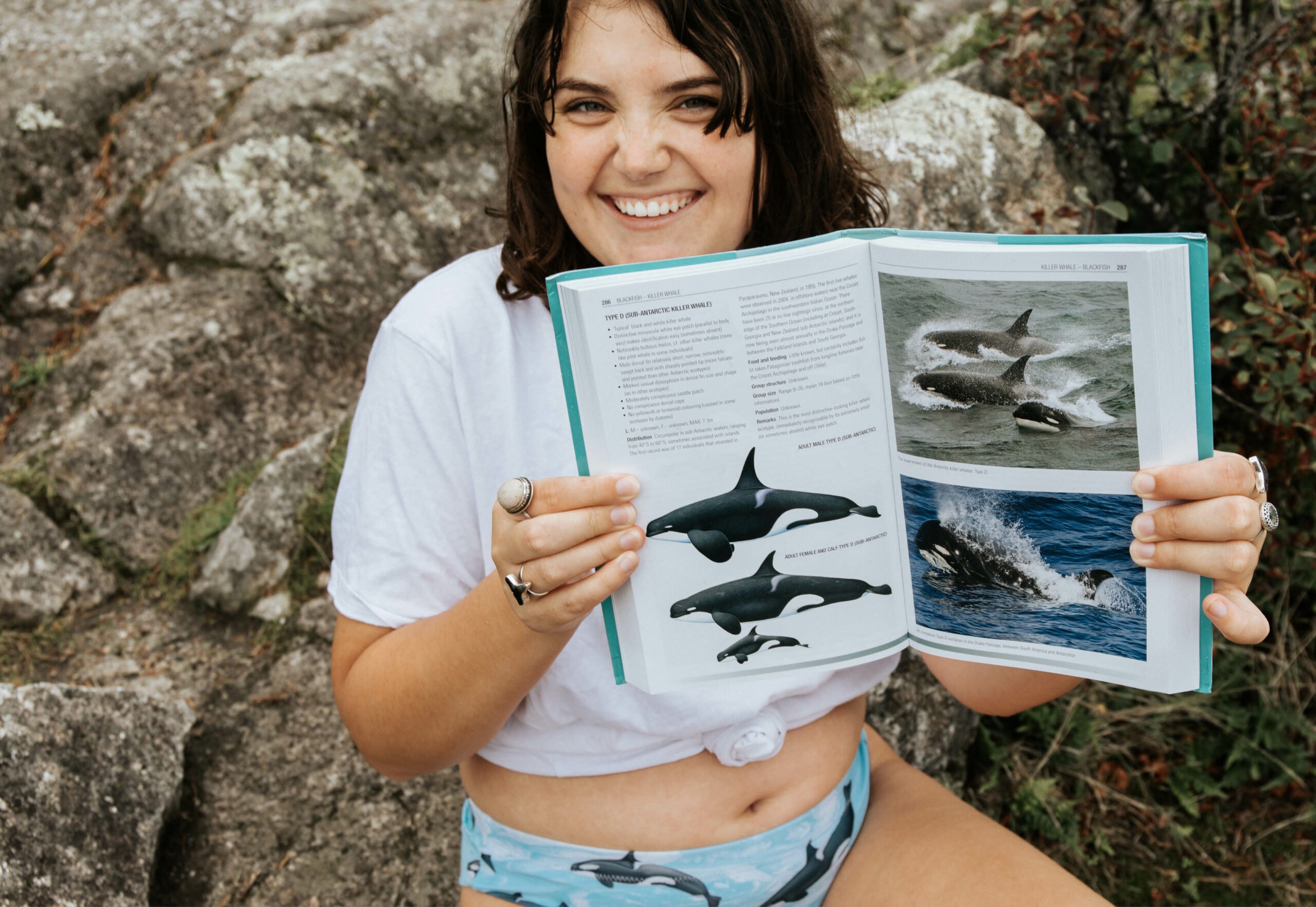
Glorious: I know when you’re not working, you enjoy diving. What came first – diving or marine conservation?
Kendra Nelson: There are so many things that bring me joy in my free time. Freediving is one of those! I started freediving years ago, whilst I was getting my degree. I did it for fun, and while I utilised my freediving for work a few times, it is predominantly a hobby and sport that I enjoy in my free time. I also love to go tide pooling, go hiking, and read! I read about four books a month and absolutely love diving into new books on topics I want to learn more about.
Glorious: You have a large social media following and you’re always posting fascinating facts and information. How do you think we can better engage and educate people in understanding the importance of taking ocean conservation more seriously and who do you think should be doing this?
Kendra Nelson: Social media really is a powerful tool for education. There are many downfalls and lots of toxicity online, but there are also these amazing spaces full of education. I think it is important and powerful when people engage with these spaces, whether that is just following a few organisations/people, or creating your own content on topics, of just sharing other posts. It is an incredibly small action but since I started posting and sharing, so many people in my own life began to make changes and be more aware of threats towards the environment (this was back when I was sitting with 4k followers and only on Instagram, so even smaller followings can have a big impact!). If you want more than online action, look locally. See if there are beach/watershed cleanups (or desert/forest cleanups). Keep an eye out for protests or environmental awareness events. See if there are restoration projects in your area that you can volunteer with (anyone in the Pacific Northwest, keep an eye out for watershed/salmon habitat restoration, there are so many amazing projects up here!). Or even invasive species removal volunteer opportunities. These are all amazing and tangible ways you can get involved locally. And great opportunities to meet like-minded people!
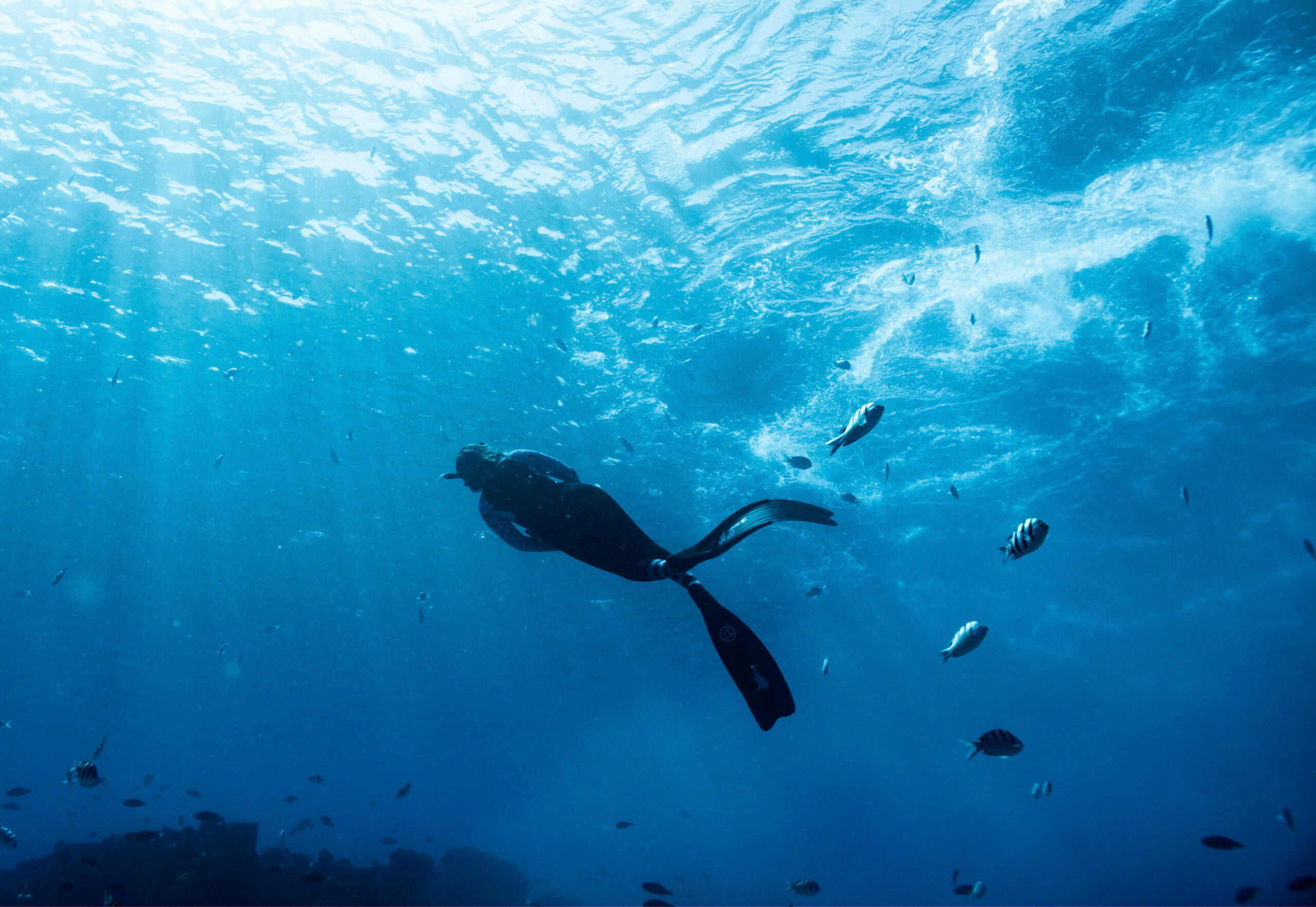
Find out more about Kendra here: Instagram and TikTok
And follow Orca Conservancy and the Rivershed Society of BC online!
Editorial Design this is root
